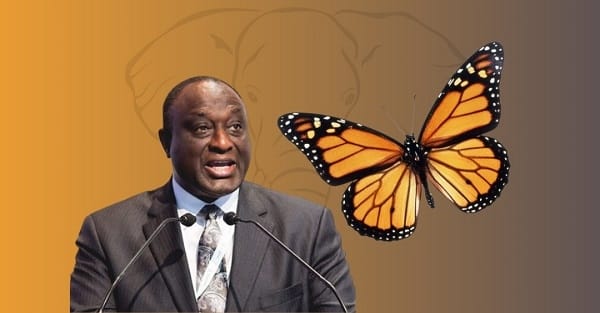Alan Kwadwo Kyerematen—founding member of the New Patriotic Party (NPP) and former Minister of Trade and Industry—has launched a sharp critique of his former party’s leadership, accusing it of arrogance and saying the party has been “hijacked.”
In an interview on TV3’s New Day programme on Friday, October 17, 2025, Kyerematen said his problem is not with rank-and-file members of the NPP but with the leadership. “The party has been hijacked,” he declared.
He described the decision by the party to grant amnesty to members—including himself and other former party figures who left as part of the Movement for Change—as “presumptuous and meaningless.” “I left the NPP on my own accord. You cannot grant amnesty to someone who has not offended you. It only shows the arrogance of the current leadership,” Kyerematen said.
Critique of Leadership Disconnect
Kyerematen argued that although his concern is not with grassroots members, the leadership of the NPP has lost touch with the party’s base. He believes the party no longer represents the values and spirit that once united its members. The founding member, who left the NPP to establish the United Party (UP) after forming the Movement for Change, said his decision was driven by a desire to restore integrity, inclusiveness, and genuine service in Ghanaian politics.
Read Also: President Mahama Removes Chief Justice Gertrude Torkornoo Amidst Ongoing Inquiry
New Political Direction
According to Kyerematen, Ghana’s political landscape has become polarised and toxic, dominated by the two major parties (NPP and NDC). His United Party, he said, plans to be a centrist option that “takes the best ideas from both the left and right” and focuses on national development rather than partisan rivalry. He promised that his new party would campaign on merit and service—not on money and patronage.
NPP Responds
The NPP leadership has pushed back against Kyerematen’s accusations. They characterised his departure as pre-meditated and argued that the party has progressively decentralised power and broadened participation—from an electoral college of about 1,998 delegates in 1992 to nearly 200,000 delegates in 2023—which they say disproves claims that the party is being hijacked by a select few.
What This Means for Ghanaian Politics
— The dispute may signal deeper tensions within the NPP as it gears up for future elections and seeks to manage both internal cohesion and external image.
— For Kyerematen and his United Party, it signals a bid to appeal to voters dissatisfied with both major parties and yearning for a new political alternative.
— For Ghanaian democracy, the public airing of intra-party critiques may reflect both greater openness and increasing fracturing within political coalitions.

